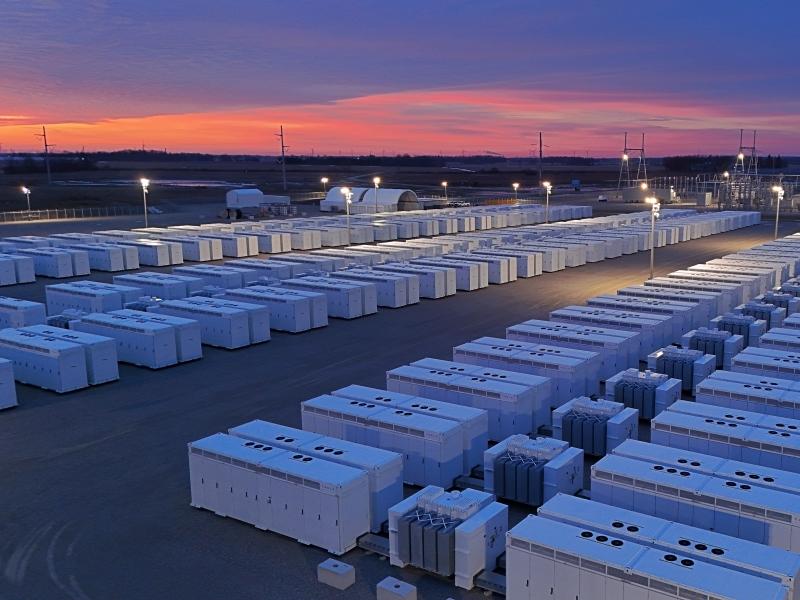
Co-operators is raising its commitment toward climate action by US$1 billion to show “how seriously this organization takes climate change as a strategic issue,” one of its sustainability leads said in an interview with Sustainable Biz Canada.
The Guelph, Ont.-based insurance and investment company announced the new target last week – a plan to raise its stakes in climate-themed investments from $2 billion in 2024 to $3 billion by 2030 (all figures US). Those investments are focused on projects for renewable energy, energy efficiency and public transit.
Chad Park, the company's vice-president of sustainability and citizenship, said Co-operators recognizes extreme weather events fuelled by a warming climate are a rising risk to Canadians and communities. Investing in solutions that mitigate carbon emissions and help adapt to a warming planet contribute to financial resiliency and security, he explained.
“If something is a threat to your purpose, you don’t tackle it when you have a few spare minutes off the side of your desk. Rather, it’s a central strategic initiative.”
Co-operators is addressing its investment portfolio, responsible for over 95 per cent of its carbon emissions in 2024 according to its 2024 Climate Report. The company declared it was carbon neutral in its operations since 2020 through energy efficiency efforts and purchases of renewable energy certificates and carbon offsets.
Co-operators climate solutions investments
As of the end of 2024, the $2 billion Co-operators had invested into climate solutions represented 21 per cent of its investment portfolio.
Those investments include green bonds to finance Ontario's Lower Mattagami River hydroelectricity project and the Connect 6ix consortium developing Toronto's Ontario Line subway.
The projects the company has invested in generate enough renewable power to provide electricity to over 4.4 million homes for one year, Co-operators said.
Co-operators plans to increase its investments not just in projects that reduce greenhouse gas emissions, but “infrastructure that can help protect communities from these rising risks” of global warming, Park said.
In 2024, the company explored this area by looking into opportunities such as wildfire risk-reducing forest management practices and stormwater management improvements to support the development of housing in flood-prone watersheds.
Co-operators also started a climate risk manager pilot program last year. It partnered with credit unions in British Columbia and Ontario to better understand their needs through advanced flood and fire exposure assessments.
To further study the potential of climate adaptation, it launched a Resilience Acceleration Lab to demonstrate the viability of such infrastructure to private investors.
How Co-operators is working toward its investment targets
Another goal Co-operators is working toward is to have 50 per cent of its assets under management (AUM) in impact or climate transition investments by the end of 2026, and 60 per cent by 2030.
The impact investments are focused on addressing climate change, water, community development, health and wellness, education, and food, agriculture and natural resources. Of those impact investments, almost 77 per cent is allocated in climate solutions.
The transition assets are primarily equities in funds invested in high-performers in high-emitting industries. Park gave the example of companies transitioning carbon-intensive sectors such as steel and cement to a greener pathway. A more specific example he provided is a stake in TransAlta, a Calgary-based electricity company that has been transitioning from fossil fuel generation to more renewable, clean sources.
Addenda Capital, an asset manager co-owned by Co-operators, offers the EcoSocial Commercial Mortgages Pooled Fund which invests in Canadian commercial mortgages aligned with social and environmental goals. The mortgages in the green buildings category count as Co-operators’ climate solutions investments. The investments are centred around buildings with LEED, BOMA BEST or other energy efficiency certifications.
Already at 52.6 per cent of its AUM in impact or climate transition investments as of the end of 2024, Co-operators exceeded its interim 2026 target and is on track to the 2030 goal, Park added.
'Much further to go' for 2050 net-zero goal
As of 2024, the company’s operational greenhouse gas emissions were 32.1 per cent below its 2019 baseline, helped by actions such as a move to its sustainable headquarters in 2023.
For its investments, Co-operators is aiming for net-zero by 2050. It has the interim goal of a 25 per cent cut to the carbon intensity of its investments by 2025 against a 2020 benchmark. As of 2024, Co-operators had achieved a 10.9 per cent reduction.
While there has been progress, Park said there is “much further to go” for Co-operators to meet its 2050 target.
“We aim to achieve it by finding good pathways to deploying our capital towards these climate solutions or climate transition investments,” he said.
As an investor, Co-operators is also advocating for carbon emission reductions through coalitions, public dialogue and collaborating with other large investors, Park added.
Alongside its increasing interest in transition investments and climate-resilient assets, Co-operators will be taking a closer eye at maturing impact investment options, such as nature-based solutions, he said.










